5th Floor, West Tower, World Financial Centre
1 Dong San Huan Middle Road
Chaoyang District, Beijing 100020, China
Tel: +86 10 5081 5880

April 19, 2023
Carbon Footprint Accounting and Decarbonization Target Planning Report Shanghai ...
In line with China's commitment to the global community to combat climate change, the Central Committee of the Communist Party of China and the State Council issued "Guidelines for Full and Faithful Implementation of the New Development Philosophy and the Planning of Carbon Peaking and Carbon Neutrality" on October 24, 2021. This plan outlines China's systematic approach to achieving carbon peaking and carbon neutrality. The Shanghai Advanced Institute of Finance (SAIF) is committed to contributing to China's national development and the global community's sustainable development. SAIF has set a long-term goal to become a world-class institution of research and advanced learning in finance and management, with a focus on Chinese markets and their global connections. SAIF recognizes that sustainability is at the core of China's new development philosophy and that carbon peaking and carbon neutrality are critical to solving environmental problems and promoting sustainable development. As an educational institute, SAIF recognizes its critical role in providing intellectual leadership in decarbonization and sustainable development. SAIF scholars have actively engaged in research and policy advice related to carbon emission reduction and broader issues related to the link between environmental change, social responsibility, corporate governance, financial behavior, and financial markets. Their research outcomes have been published in international journals. SAIF has also established the Center for Sustainable Investment to collaborate extensively with the financial industry and governments at all levels. As policy advice, SAIF has actively participated in the formulation of a number of green finance laws and regulations. It has helped develop important products such as the Shanghai Green Finance Index. Additionally, SAIF offers ESG-related courses, which have contributed to educating finance professionals in low carbon and sustainability. SAIF has explored its own path for green development and taken the construction of a low-carbon campus as a key long-term goal. SAIF has formulated detailed carbon reduction goals and action plans and aims to achieve carbon peaking by 2030 and carbon neutrality by 2045. Carbon footprint accounting, as an indicator used to evaluate an organization's impact on climate change, helps SAIF understand its current carbon and sustainability status, identify areas for improvement and innovation, and establish carbon reduction targets and a low-carbon roadmap. Carbon Reduction Target and Roadmap Planning Consistent with the overall strategic goal of China’s national sustainable development, we regard serving the national and global goal of mitigating climate change as one of our long-term strategic goals. The current carbon reduction target and roadmap planning marks an essential step taken by SAIF in the direction of green economy and low carbon emissions. With our commitment to ameliorate our planet’s environmental strains through practical action, SAIF will find scientific, robust and rational methods to achieve low carbon emissions and sustainability. Using this knowledge, we will then create an action plan for carbon reduction to facilitate the construction of a low-carbon business school. Based on our carbon emissions from 2019 to 2022, along with further feasibility analysis, Shanghai Advanced Institute of Finance at Shanghai Jiao Tong University aims to achieve carbon peaking by 2030 and carbon neutrality by 2045. To achieve these goals, SAIF will continue to implement carbon reduction roadmap planning through "low-carbon soft environment construction" and "low-carbon hard environment construction." As to the former, SAIF will continue to improve its carbon emission management system, its low-carbon and sustainable development work plan, and its archives for low-carbon campus creation. We will incorporate carbon emission budgeting and accounting into our overall financial system, train low-carbon volunteers, and strengthen the initiative for low-carbon energy conservation. As to the latter, SAIF will optimize carbon emission management for campus buildings and centers, increase energy savings and emissions reduction through the renovation of facilities, and explore low-carbon operations teaching. SAIF will provide more intellectual support for exploring the strategies of carbon peaking and carbon neutrality in theoretical research, empirical analysis, and practical tests. 2022 Carbon Footprint Accounting As an indicator in assessing an organization's response to climate change, the carbon footprint accounting enables a clear understanding of the current state of the organization's low-carbon and sustainable development, and identifies areas for improvement and innovation. By leveraging rational and scientific planning, organizations can set emission reduction targets as well as a low-carbon roadmap. As an initial step in devising a carbon reduction roadmap and formulating a carbon reduction action plan, SAIF is adopting a scientific carbon emissions model to calculate its carbon footprint for its Shanghai campus, Beijing Center, and Shenzhen Center. This analysis will serve as a foundation for establishing SAIF's carbon reduction goals and constructing a low-carbon institute. SAIF’s carbon footprint accounting goals and technical approach are outlined, as follows. Carbon Footprint Accounting Goals • Calculate the carbon footprint of the main emission sources within the boundaries of SAIF's Shanghai campus, Beijing Center, and Shenzhen Center. • Use the establishment of a low-carbon institute as the starting point to further enhance efforts toward achieving a "Dual Carbon" goal. Carbon Footprint Accounting Technical Approach and Results I. Reference The carbon accounting method adopted in this report is calculated in accordance with "A Corporate Accounting and Reporting Standard" (The Greenhouse Gas Protocol) and refers to the "Specification with Guidance at the Organization Level for Quantification and Reporting of Greenhouse Gas Emissions and Removals” (ISO 14064-1:2018) guidelines, described, as follows. 1) The Greenhouse Gas Protocol. Established jointly by the World Resources Institute (WRI) and the World Business Council for Sustainable Development (WBCSD), it develops internationally recognized greenhouse gas accounting, reporting methods, and standards. The revised version, which was published in 2009, has been widely recognized internationally. 2) ISO 14064-1:2018. ISO 14064 was published by the International Organization for Standardization (ISO) in 2006, consisting of three parts: enterprise-level carbon accounting (ISO 14064-1), project-level carbon accounting (ISO 14064-2), and greenhouse gas verification (ISO 14064-3). ISO 14064-1 is the internationally recognized standard for organization-level carbon accounting, and our report refers to its latest edited 2018 version. II. Establish the Organizational Boundary To set SAIF’s carbon footprint accounting boundary, an accounting method is chosen in accordance with international standards, and the selected method is then used to define the emission activities of the institution. As the subject of the carbon footprint accounting is the Shanghai Advanced Institute of Finance, a public institution, the Control Approach is used to set the organizational boundary and consolidate the carbon footprint accounting results. III. Establish Operational Boundaries According to "A Corporate Accounting and Reporting Standard" (The Greenhouse Gas Protocol) and reference to the "Specification with Guidance at the Organization Level for Quantification and Reporting of Greenhouse Gas Emissions and Removals” (ISO 14064-1:2018) guidelines, three “scopes” (scope 1, scope 2, and scope 3) are defined for carbon accounting and reporting purposes, as follows. • Scope 1: Direct GHG emissions occur from sources that are owned or controlled by the organization, such as carbon emissions generated by boilers, vehicles, and refrigerant leaks from air conditioners that SAIF owns or controls. • Scope 2: Indirect GHG emissions generated by purchased electricity and heat consumed by the organization. • Scope 3: Other Indirect GHG emissions which are a consequence of the activities of the organization but occur from sources not owned or controlled by the organization. Scope 3 emissions are divided into 15 categories. Taking into account the conditions of SAIF’s daily operation, we have defined the operational boundaries for SAIF’s carbon accounting. Specifically, scope 1 emissions include fuel consumption by vehicles owned by the institute, as well as emissions caused by refrigerant leaks in air conditioning. Scope 2 emissions include the electricity used by the institute. After analyzing the representative categories within Scope 3, we selected Category 1 (Purchased Goods and Services), Category 6 (Business Travel), and Category 7 (Employee Commuting) for disclosure in this report. IV. Determination of Greenhouse Gas Reporting Categories Seven greenhouse gases are annotated by ISO 14064-1: 2018. These include: CO2, CH4, N2O, HFCs, PFCs, SF6, and NF3. SAIF's carbon footprint accounting will include these seven greenhouse gases and will ultimately be calculated, and reported, in units of carbon dioxide equivalent. V. Emission Factors Carbon emissions incurred by a specific emission source, such as purchased electricity and thermal, are usually calculated based upon published emission factors. The sources of emission factor data are arranged in order of authoritativeness: emission factors officially published by the government, factors disclosed by industry experts, professional organizations, and research reports. To ensure the authoritativeness of the carbon footprint accounting, the following emission factors were selected. [1] Source: Ministry of Ecology and Environment of the People’s Republic of China [2] Source: Carbon Accounting Methodology for Carbon Reduction Trips, Beijing [3] Source: Beijing Low-Carbon Travel Methodology [4] Source: Large-Scale Conferences and Exhibitions Low-Carbon Assessment Guidelines [5] Source: Large-Scale Conferences and Exhibitions Low-Carbon Assessment Guidelines [6] Source: CPCD [7] Source: Ecoinvent VI. Quantify Carbon Emissions After defining the scope of analysis for SAIF's carbon footprint in 2022, identifying all major sources of greenhouse gas (GHG) emissions, and collecting activity data, the physical emissions of various sources were converted into "carbon dioxide equivalent". Carbon dioxide is the primary gas produced by human activities that contributes to the greenhouse effect. Other greenhouse gases have varying contributions to the Earth's greenhouse effect. To measure overall impacts uniformly, carbon dioxide equivalent is generally used as the basic unit for measuring the greenhouse effect. The carbon dioxide equivalent of a greenhouse gas is obtained by multiplying its global warming potential (GWP) by its emission volume. This approach standardizes the effect of different greenhouse gases. The global warming potential is typically calculated based on 100 years and is represented as GWP100. For example, methane's GWP100 value is 27.9, indicating that the amount of heat captured by one metric ton of methane emitted over 100 years is 27.9 times that of one metric ton of carbon dioxide. In practice, the activity data related to carbon emissions can be obtained directly, and the more direct calculation method involves converting the activity's carbon emissions into carbon dioxide equivalents using the emission factor. The emission factor refers to the average carbon dioxide emission per unit activity. The institute's carbon footprint is equal to the sum of the carbon dioxide equivalents generated by all activities or consumption related to carbon emissions. Based on the activity statistics and the above emission factors, we now have the following annual carbon emissions of SAIF during 2022. Based on the results of carbon footprint accounting, SAIF's total carbon emissions in 2022 decreased by 263.461 tons of carbon dioxide equivalent compared to 2019. As the school anticipates an increase in teaching and faculty exchange activities as we emerge from the COVID-19 pandemic, SAIF will intensify its efforts to control various carbon emission factors, limit the total growth of carbon emissions, and achieve its carbon neutrality development goal. (This summary is based on a third-party accounting report. If you require access to the full report, please contact the SAIF Dean’s Office.)
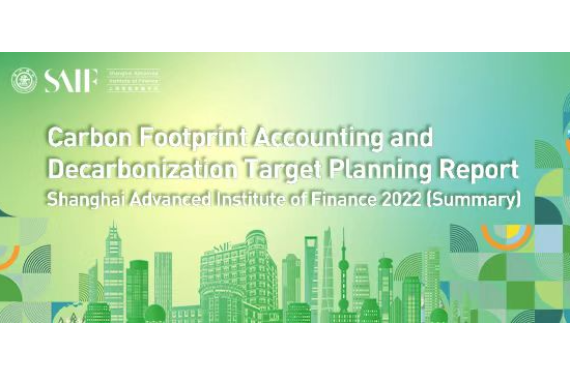
March 30, 2023
2023 QS World University Rankings Published
On March 22, Quacquarelli Symonds (QS) released its newest World University Rankings by Subject. Shanghai Jiao Tong University (SJTU) ranked among the top 50 in the world in 12 disciplines. Four of these twelve disciplines were co-constructed by SAIF, including: Business and Management Studies, ranked 32nd globally (1st in mainland China); Accounting and Finance, ranked 39th globally (3rd in mainland China); Statistics and Operations Research, ranked 43rd globally (3rd in mainland China); and Economics and Econometrics, ranked 56th globally (4th in mainland China). The ranking covered a total of 1,594 universities in 93 countries (regions) around the world, and conducted an independent comparative analysis of performance across 54 disciplines and 5 academic fields of 15,700 university disciplines. The listed number of disciplines from China hit a record high, reaching 851 in total. Disciplines of 21 universities in mainland China (123 in total) were ranked in the top 50, globally. QS World University Rankings by Subject is one of the four most authoritative global university rankings, along with Times High Education, U.S. News & World Report, and Shanghai Ranking. Unlike the Times and U.S. News rankings, which focus on comprehensive indicators (including academic conditions and funding), the QS and Shanghai Ranking emphasize academic reputation, research output, and impact.
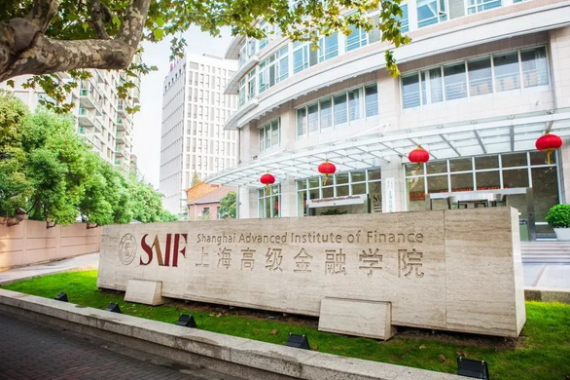
March 27, 2023
SAIF-Charles Schwab 2022 China Residents Financial Literacy Report Released
On March 15th, the 2022 China Residents Financial Literacy Report (the Report) was released by SAIF and Charles Schwab (a top US financial services institution) at SAIF. The Report analyzed difficulties for Chinese residents’ financial literacy from six dimensions, and gave constructive suggestions on how to help Chinese residents’ future wealth prospects with better financial education. Focusing on financial literacy, participants offered suggestions on how to improve the financial literacy of Chinese residents from the academic, industry, and regulatory perspectives — jointly combining Chinese practice and overseas advanced experience. In the speech session, Guangshao Tu (Executive Director of SAIF Board) congratulated the release of the Report. He affirmed the importance and long-term significance of the study on financial literacy for Chinese residents. Lisa Hunt (Managing Director of International Markets, Charles Schwab) expressed her gratitude for the years of cooperation between SAIF and Charles Schwab. She pointed out that the financial literacy is a core issue of long-term concern for Charles Schwab. She called on financial institutions to play a key role in providing high-quality financial education and improving overall financial literacy. Professor Fei Wu pointed out that the current financial literacy of Chinese residents is unevenly distributed; basic financial knowledge, practical ability, and security awareness need to be improved upon. He also emphasized that efficient and universal financial literacy education is indispensable.
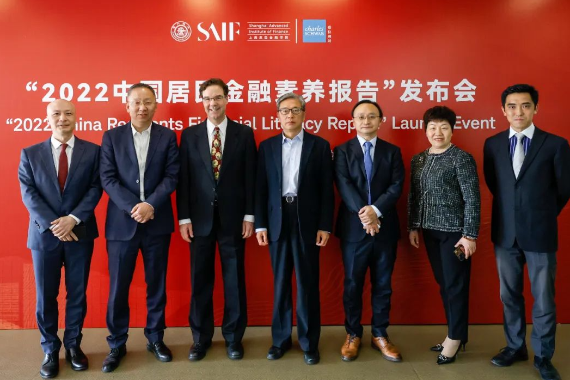
March 20, 2023
SAIF Greater Bay Area Center Launched
On March 19th, SAIF held the “New Future in the Greater Bay Area (GBA)” summit in Shenzhen. The enrollment of the 2024 MBA GBA Class and the SAIF Greater Bay Area Center was then launched, simultaneously. Shijun Cheng (Executive Dean, Professor of Accounting at SAIF) said that SAIF MBA GBA Class has a high-quality faculty and support team, and is supported by the officially launched Greater Bay Area Center. SAIF will utilize its international talent cultivation system to promote high-quality development of the GBA. SAIF MBA Program started its GBA Class enrollment for the first time in 2021, becoming the first MBA program in China to offer courses in Beijing, Shanghai, and Shenzhen. The program will combine the advantages of the three megacities to provide students with a deep learning experience from classroom to enterprise, and from theory to practice. By sharing alumni resources, it will also build a communication platform for interaction between students, schools, and enterprises which will help further to broaden horizons and enhance cooperation. At the launching ceremony, Professor Eric C. Chang (MBA Program Academic Director at SAIF) posited that SAIF provides not only financial knowledge but also specialized education to improve students’ capability, thus empowering industry. SAIF’s curriculum focuses on the international and ESG perspectives of social and economic development. For the GBA Class, SAIF will offer a number of “Science and Innovation” courses to help meet the urgent needs of talent development for the GBA. In addition to the formal courses, the program also provides a CGFT course and an individual industry mentor to help students with their academic and professional development.
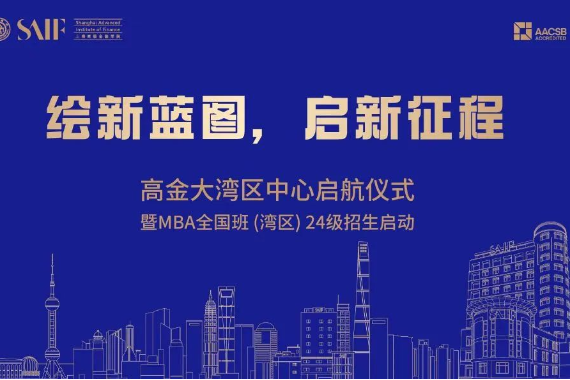
March 09, 2023
SAIF and Visa Sign Strategic Cooperation Agreement
On February 21st, SAIF and Visa signed a strategic cooperation agreement. Guangshao Tu (Executive Director of SAIF Board) said that SAIF is focusing on education and research in Green Finance, Digital Finance, Science and Innovation Finance, and Inclusive Finance based upon its existing advantages. Taking high-quality development as an opportunity, SAIF designs cutting-edge education courses, broadens training areas, and advances construction of think tanks to further enhance its ability to serve Shanghai as an International Financial Center. Visa plays an important role in the global payment field, and the cooperation between Visa and SAIF is of great significance to both sides. Xiaolong Yin (Global Vice President and President of China, Visa) said that, as the world’s leading digital payment company, Visa is pleased to cooperate with a top financial institute like SAIF. He hoped the comprehensive cooperation would bring professional financial courses and experience to Visa colleagues and banking partners, and contribute to the development of individuals, enterprise, and the economy. In the future, both sides will combine their respective resource advantages to strengthen cooperation in international exchanges, executive courses, and financial technology talent training to promote high-quality development for the payment industry.
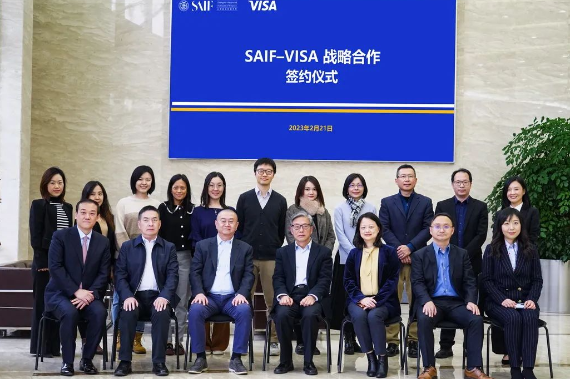
February 24, 2023
2023 International Youth Leadership Finance Summit Held at SAIF
On January 12th, the 2023 International Youth Leadership Finance Summit (IYLFS), hosted by the SAIF MF Program, was held online. More than 120 students from 17 top universities around the world (including Tsinghua University, Peking University, Shanghai Jiao Tong University, Fudan University, Chinese University of Hongkong, New York University, and University of California) gathered online to focus on ESG Investment. At the opening ceremony, Jonathan Bailey (Head of ESG Investing at Neuberger Berman) gave a keynote speech. Based upon his 15-year professional ESG experience, Bailey gave a detailed speech from five aspects: how to integrate environmental, social and governance factors in the investment process, how to help enterprises’ development with investment, how to assess the risks and opportunities brought about by climate change, ESG investment trends in 2023, and how to start an ESG investment career. During the four-day live PK session, participants competed on the theme of “Green Bonds”, “ESG Disclosure Standards”, and “EU Emissions Trading System (EUETS)”, conducted in English. In the end, the team from Tsinghua University won first prize with its report on “ESG Disclosure Standards”.
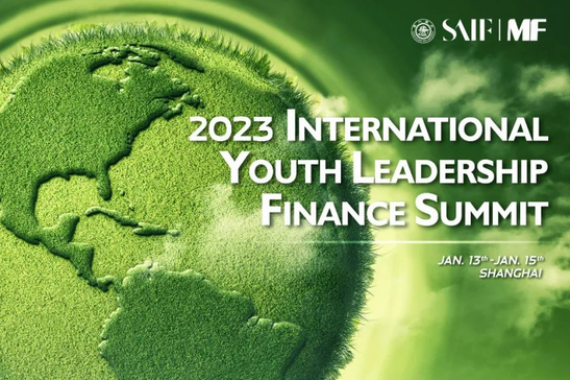
February 24, 2023
SAIF Conducted Faculty Recruitment at ASSA Annual Meeting
In early 2023, SAIF attended the Allied Social Science Association Annual Meeting (ASSA Annual Meeting) in New Orleans, and held a reception with the support of the American Finance Association (AFA) to recruit global young professors. SAIF has always been recruiting top faculty worldwide. It was the only Chinese business school that held a special reception at the ASSA Annual Meeting this year. During the annual meeting, SAIF Professor Team interviewed 26 candidates online from a rigorous selection pool of nearly 200 applicants. The ASSA Annual Meeting is one of the world’s largest academic social and science meetings consisting of AEA, AFA, ES, and 64 other related societies. This year, more than 13,000 economists attended the meeting. It not only provides a platform for academic exchange, but also offers an important channel for graduates of Economics, Finance, and Management in North America to apply for jobs.
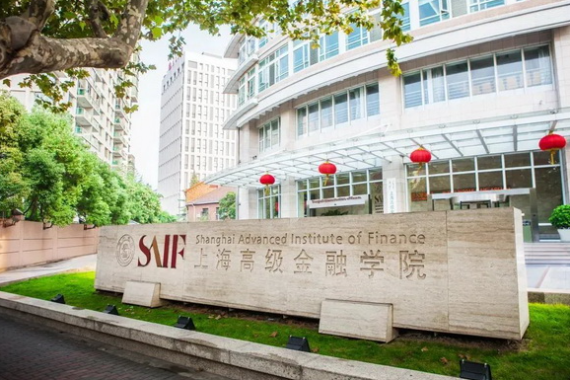
February 24, 2023
Professor Zhan Jiang’s Subject Selected as 2022 SAC Excellent Key Subject
To serve the real economy, the reform of capital markets, and the development of the securities industry, the Securities Association of China (SAC) organized research for key subjects in 2022. SAC received a total of 476 applications, of which 183 were listed as key subjects. Finally, 59 subjects (submitted by 34 brokerages, 1 fund company and 1 regulatory agency) were selected to be designated as an Excellent Key Subject. The subject “Empirical Research on the IPO Pricing Efficiency under the Registration System - The Protection of Small and Medium Investors” led by Zhenying Gao (Chairman of Xiangcai Securities) and Zhan Jiang (Professor at SAIF) was included on the Excellent Key Subject list. Based upon the development experience of China’s capital markets, Zhan Jiang’s group focused on the specialization of local pricing mechanisms under the registration system. Starting with regulatory rules, market mechanisms, and enterprise characteristics, they identified problems and explored solutions for the pricing mechanism related to IPO by combing theoretical research and empirical analysis. In the future, the group will continue to conduct in-depth research to improve the effectiveness of financial support for science and innovation, and to enhance the effective allocation of resources. Except for IPOs, they will focus more on the improvement of the system and mechanisms related to M&A and Restructuring.
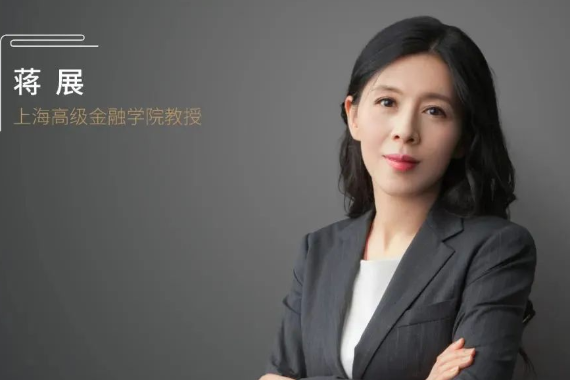
February 13, 2023
SAIF 2023 Annual Board Meeting Held
On January 15th, SAIF held its 2023 Annual Board Meeting. Qing Wu (Member of the Shanghai Municipal Standing Committee, Executive Vice Mayor of Shanghai, Chairman of the SAIF Board) presided over the meeting and delivered a speech. Board members, and other esteemed leaders attended the meeting. The meeting reviewed and summarized the work of SAIF in 2022 and considered work arrangements for 2023. Report on the Improvement of SAIF Third Phase Construction was discussed and adopted as well. During the meeting, Professor ShiJun Cheng (Executive Dean) presented the annual work report for 2022 on behalf of SAIF. The directors reviewed the achievements of SAIF for the past year and discussed various aspects for further work and development. Chairman Qing Wu put forward four suggestions for the new phase of SAIF in his concluding speech. First, we must stick to the construction goal of “The World-Class Finance School” and its internationalization mode. Second, we should strengthen the formation of our international top-tier faculty. Third, we should serve the national development strategy, and continuously improve our high-end think tank. Fourth, we should enhance the self-managed operation capability worldwide.
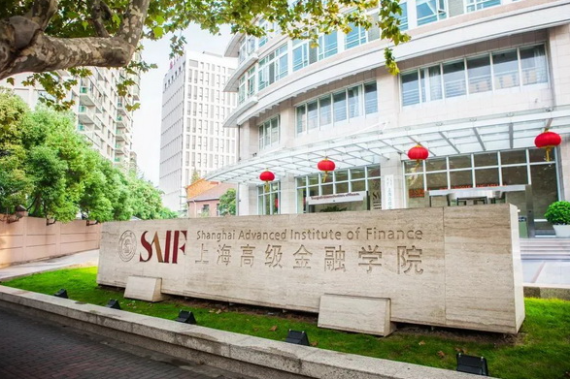
February 10, 2023
White Paper Released on Bankruptcy Restructuring for Listed Companies in China
On January 17th, White Paper on Bankruptcy Restructuring of China’s Listed Companies (2022) - Case Study Report on Bankruptcy Restructuring of China’s Listed Companies from 2018 to 2021 was released by a group jointly formed by SAIF, the Center for Corporate Financial Research at CAFR, and the M&A and Restructuring Specialized Committee at Global Finance Leaders Forum. The paper provides a comprehensive overview and study of bankruptcy restructuring cases for China listed companies in recent years. Summarizing the experience, it puts forward a number of policy recommendations to promote the standardization of bankruptcy restructuring of listed companies and to protect investors’ rights. The paper shows that there’s no significant correlation between the share price after reorganization and net profit increase, for most companies. Although some listed companies have temporarily solved their debt crises through bankruptcy reorganization, their sustainable operation and profitability have not recovered. Some even use insider information in the restructuring for arbitrage, which harms the rights and interests of small and medium-sized investors and hampers the development of China’s capital markets. Hence, the group proposed a number of policy recommendations, including: “Strengthen the review of restructuring plans, especially business plans”, “Increase penalties for market manipulation, insider trading and other illegal acts”, “Strengthen market education and focus on early diagnosis”, “Guide and explore experienced restructuring investors to participate in bankruptcy restructuring of listed companies”, and “Protect the interests of small and medium-sized investors”.


211 West Huaihai Road
Shanghai 200030, China
Tel: +86 21 6293 3500
9th Floor, Building T6, Hongqiao Hui
990 Shenchang Road
Shanghai 201106, China
3rd Floor, Building D, Chenfeng Building
800 Tongpu Road
Shanghai 200062, China
5th Floor, West Tower, World Financial Centre
1 Dong San Huan Middle Road
Chaoyang District, Beijing 100020, China
Tel: +86 10 5081 5880
1203 Tower 7, One Shenzhen Bay
Nanshan District, Shenzhen 518000, China
Tel: +86 755 8663 8815
© Shanghai Advanced Institute of Finance All Rights Reserved.


Top